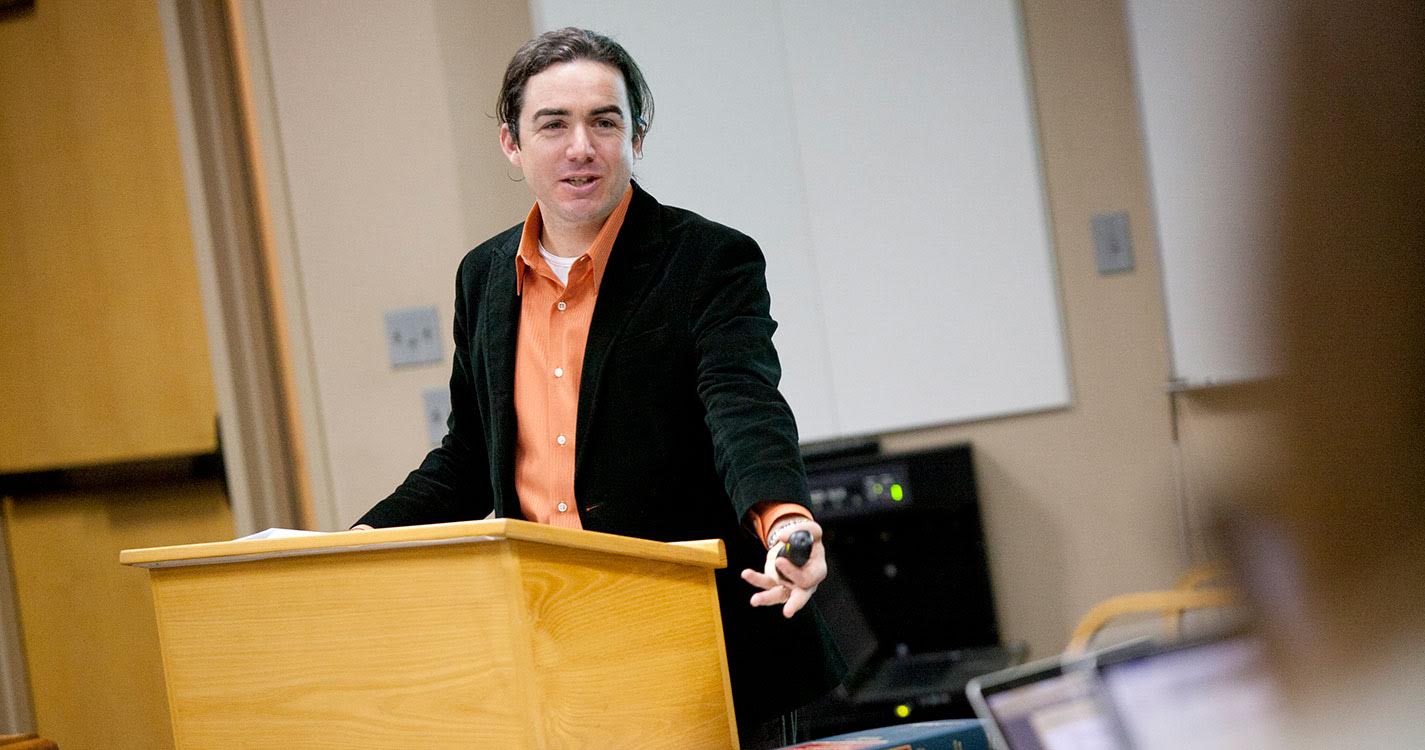The Portland Tribune quoted Willamette Law Prof. Keith Cunningham-Parmeter in a story Sept. 28 on an upcoming U.S. Supreme Court case dealing with mandatory union fees. The case is Janus v. American Federation of State, County, and Municipal Employees, Council 31, brought by Mark Janus, an employee of the Illinois Department of Healthcare and Family Services, who is challenging paying mandatory union dues.
In 1977, the court permitted the required fees, setting a nearly 40-year precedent.
“The case has the potential to kill public sector unionism as we know it,” Cunningham Parmeter said.
He focuses his research on labor law and explores work-family policy, gender theory and contingent workers’ rights.
“Mandatory dues are the lifeblood of most unions, so if the Supreme Court says that unions can no longer collect those dues, that is going to be a serious cut to the union budgets,” he continued.
Out of the 50 states, 28 have “right-to-work” laws which make union fees voluntary, while the other 22, including Oregon, have legalized required dues. Opponents, including the four major public sector unions, have been critical of the court’s decision to hear the case. They say the fees are “fair share” fees, since they pay for collective bargaining and pursuing grievances.
Janus says that collective bargaining is political, therefore the required fees become “government compelled speech,” a First Amendment violation, according to the Freedom Foundation.
Although the court heard a similar case, Friedrichs v. California Teachers Association, last year, the vacancy created by Justice Antonin Scalia’s death in February 2016 created a deadlock with a tie of 4-4 on the issue, returning the case to the Ninth Circuit Court of Appeals, where its verdict was upheld. With the appointment of Justice Neil Gorsuch, a conservative, Cunningham-Parmeter said the precedent will probably be reversed.
“It’s extremely likely that opponents of mandatory fees are going to prevail this time,” Cunningham-Parmeter said. “All of the tea leaves point to Justice Gorsuch providing the fifth vote to invalidate these … mandatory fees.”
The Supreme Court will decide the case by June.
Read the full Portland Tribune story.
Prof. Cunningham-Parmeter was also quoted in a Statesman Journal story Sept. 30. Read the full story.
About Willamette University College of Law
Opened in 1883, Willamette University College of Law is the first law school in the Pacific Northwest. The college has a long tradition at the forefront of legal education and is committed to the advancement of knowledge through excellent teaching, scholarship and mentorship. Leading faculty, thriving externship and clinical law programs, ample practical skills courses and a proactive career placement office prepare Willamette law students for today's legal job market. According to statistics compiled by the American Bar Association, Willamette ranks first in the Pacific Northwest for job placement for full-time, long-term, JD-preferred/JD-required jobs for the class of 2014 and first in Oregon for the classes of 2012, 2013, 2014, and 2015. Located across the street from the state capitol complex and the Oregon Supreme Court, the college specializes in law and government, law and business, and dispute resolution.

